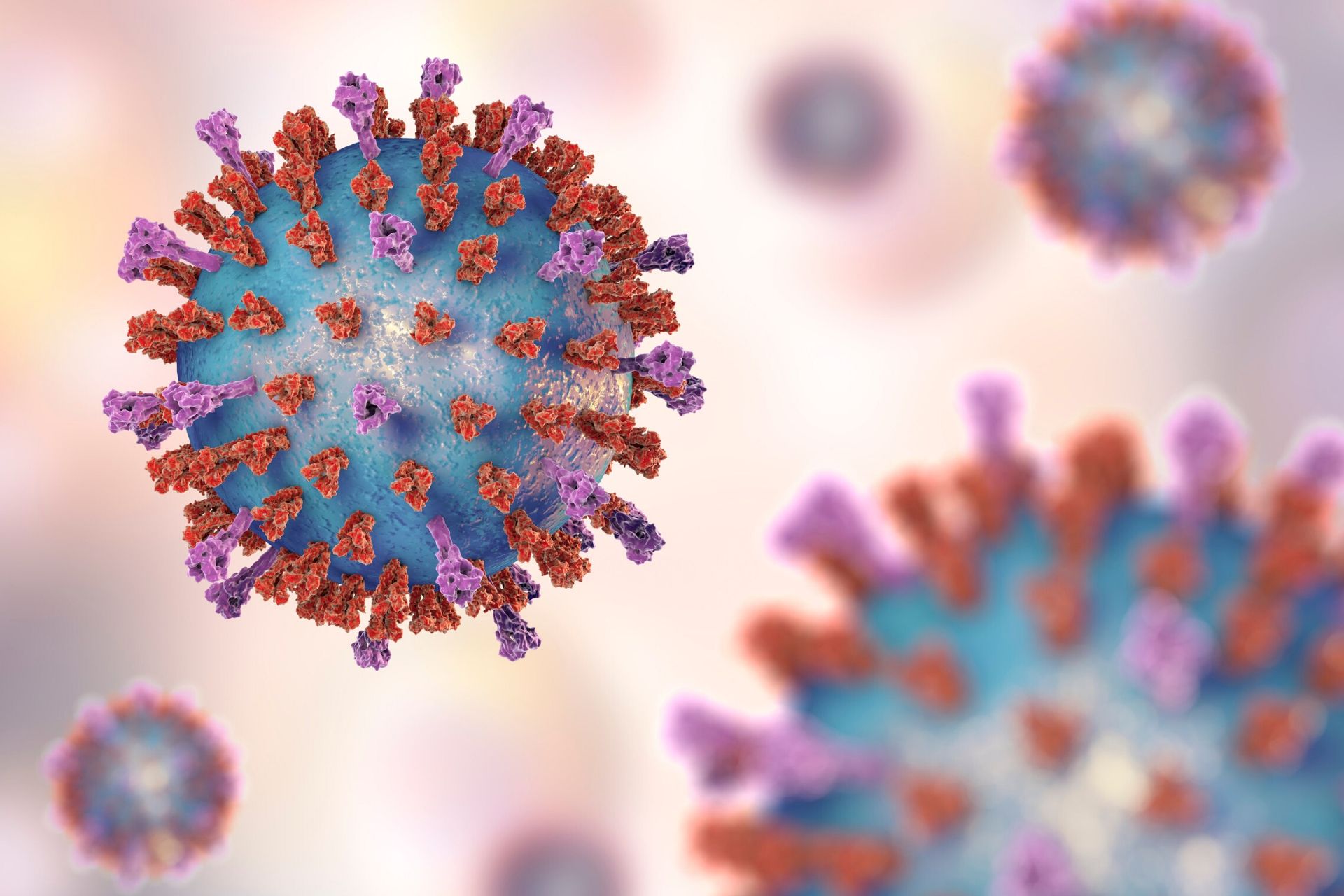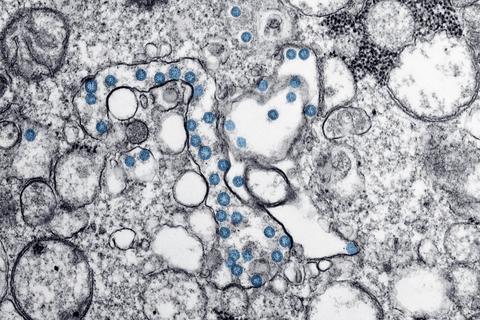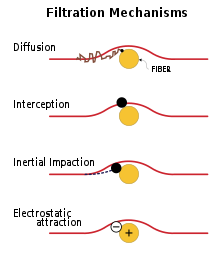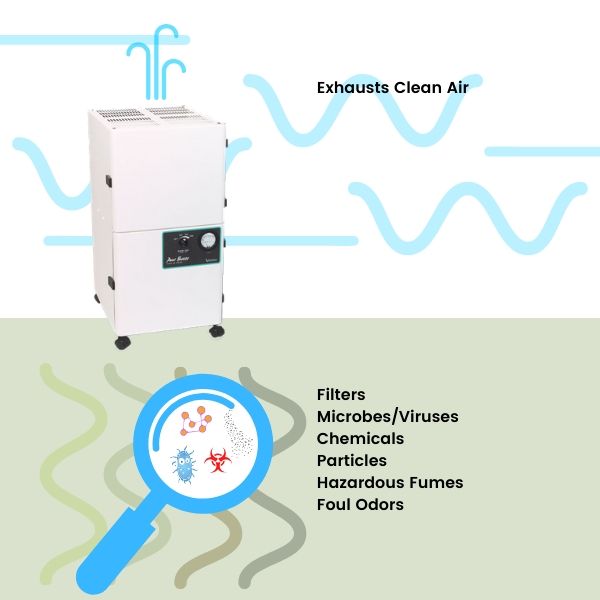
Due to the recent COVID-19 pandemic, we decided to clear up a few things about HEPA filtration and viruses.
Do HEPA air purifiers filter out the COVID-19 virus?

The short answer is we don’t have any direct research to verify if a HEPA air purifier reduces transmission of COVID-19 however, according to Professor Jeffrey Siegel at the University of Toronto, “we can infer from what we know for similar viruses, like SARS, there is reason to think air purifiers might help in some situations.”
How many microns in size is the COVID-19 virus?
The COVID-19 virus is approximately 0.125 Micron or 125 nanometers in diameter. (Source: National Library of Medicine)
However, it often travels in biological aerosols from coughing and sneezing which range in size from 0.5-3 Micron.
How does HEPA filtration work?
HEPA stands for High Efficiency Particulate Air and is a filtration rating that captures microbes, dust, and particulates down to 0.3 Micron.
But what does that really mean and how do they work?
The U.S. Department of Energy first termed HEPA as a filtering specification for suppliers of filtration products based on how effective they were at particle removal.
HEPA filters consist of a complicated mix of filaments and fibers that carry a static charge which lures various microbes and particles like a magnet.
While the particles travel through the air filtration system, they’re captured and retained within the filter. Additionally, an interesting scientific effect occurs known as Brownian Motion which causes particles in certain media states (such as fluid) to bounce around and become trapped.


How do N95 or KN95 face masks compare to HEPA air purifiers?
You may see or hear about people wearing surgical masks or N95 or KN95 rated masks to prevent themselves and others from being exposed to Covid-19. One important thing to note is that these masks are not as effective as HEPA air purifier systems like the Vaniman Pure Breeze which is more efficient than KN95/N95.
N95 or KN95 face masks capture 95% of particles down to 0.3 micron. This means that 5% still get through the protection. HEPA air purifiers in contrast are 99.97% effective at 0.3 Micron and are much more efficient than face masks.
What is the difference between MERV and HEPA filters?
You may have heard the term “MERV” before. It stands for Minimum Efficiency Reporting Value and is a rating system for HVAC air filters created by the American Society of Heating, Refrigerating, and Air Conditioning Engineers or (ASHRAE).
Many people are asking the question, “can I use a MERV filter in a mask”?
While there have been no scientific studies we could find for this, the answer is likely no.
Here’s why…
MERV stands for Minimum Efficiency Reporting Values, or MERVs, report a filter’s ability to capture larger particles between 0.3 and 10 microns (µm). (Per the EPA)
HEPA and MERV filters are usually not the same. MERV rated filters are typically used in air conditioning systems, including systems found in most homes.
MERV filters have a rating system… MERV 7, 8, 10, and so on—up to MERV 20.
MERV filters are not effective at filtering microbes and viruses until they are rated at 17 or better.
At these ratings, these are considered HEPA or ULPA rated and are effective, however you likely won’t see the MERV rating in these applications as they would simply state “HEPA” instead.
What is the difference between N95 and KN95 face masks?
N95 face masks are examples of personal protective equipment, or PPE, that are used to protect the wearer from airborne particles and liquid contaminating the face.
They are regulated by the FDA and NIOSH (U.S. National Institute for Occupational Safety and Health). The N is for “Not resistant to oil” and the 95 refers to the minimal is efficiency level at 0.3 microns (of which is it 95% efficient).
Similarly, KN95 masks are also a form of PPE used to protect the wearer from similar hazards though they are not regulated by NIOSH. These masks are often identical to N95 masks and are the “N95 equivalent” for medical usage in China.
In the US, they are primarily used in industrial settings and offer the same filtration as N95 face masks with a rating of 95% at 0.3 Micron. In fact, these masks are often produced from the same assembly line as N95 masks however are not sent for NIOSH regulation.
On April 3rd of this year, the FDA approved the use of KN95 masks for healthcare professionals in an effort to increase the available PPE face masks and lower the spread of the COVID-19.
View our KN95 Face Masks by clicking HERE.
How do viruses like COVID-19 spread through the air?
By nature, viruses are sub-micron in size-we’re talking 500nm (0.5 micron) and below. Not to mention viruses only require a small amount to enter your body in order to start an infection.
The sad truth is that some viruses will inevitably pass through any HEPA filter.
Here’s why…
Typically, viruses like COVID-19 or even H1N1 are spread through the air via biological aerosols. These tiny moisture droplets are expelled whenever you sneeze, cough, or go ACHEW!

They carry bacteria and viruses through the air and ultimately your respiratory system.
Overtime, with enough volume or use, particles will eventually separate and penetrate the filter due to their sub-micron size.
How can a HEPA air purifier help lower the spread of the COVID-19 virus?
Research studies have been conducted to test the efficacy of HEPA filtration on moisture droplets containing viruses. This was due to the potential of using pathogens as biological weapons.
Most biological aerosols range in sizes from 0.5-3 micron. HEPA air purifiers, such as the Vaniman Pure Breeze, captures aerosol particles in that size range
On paper, it is impossible for any HEPA filter to be 100% effective since many microbes are less than 0.03 micron in size—but that’s in an isolated form where they typically can’t survive long.
Plus, research is still being done on the subject.
An interesting study performed by NASA indicated that HEPA filters were able to capture sub-micron particulate down to 0.1 micron!
You can view the study here: NASA HEPA Study
Additionally, all testing is performed using brand new filters. HEPA filters actually work better the “dirtier” they get (up to the point where airflow is restricted).
Vaniman HEPA Air Purifiers are DOP 95 and N95 rated and are designed to cycle and scrub the air of a 1000 sq ft room 4 times per hour.
This makes it a viable option for capturing aerosol particles.

Not only can HEPA air purifiers capture viruses, but they also create a cleaner work area in general.
If you work in an area with potential airborne hazards or particles, then the Pure Breeze is an excellent piece of equipment to promote better air quality and health.
But please keep this in mind, a HEPA air purifier is not an end all solution. It can only filter particles it captures-many airborne particles can still be present in the air and land of surfaces or travel around before getting captured by an air purifier.
This is why proper disinfecting procedures are required, wearing masks, gloves, and following procedures to regularly disinfect are all key factors in reducing the spread of any contagion.
Which HEPA air purifiers can filter out the COVID-19 virus?
No system has been proven to filter COVID-19 as of yet—as it is a new virus. But there is research supporting an air purifier’s ability to filter common airborne viruses as long as the infected air is captured by the system.
Combine this with CDC recommended safety procedures like washing your hands or wearing masks and your odds of spreading any corona virus are potentially less.
Be careful of using units which also have UV light inside as an additional form of filtration as they may be more trouble than what they’re worth—check out our article on whether UV light helps with HEPA filtration devices or not.
For more information on the COVID-19 virus and additional ways you can help prevent it’s spread, visit the official CDC page here https://www.cdc.gov/coronavirus/2019-ncov/index.html.
PPE Equipment List
Watch a cool video about HEPA Air Purifiers here.
HEPA Air Purifiers for Isolation Rooms and General Air Purification
KN95 Rated Face Masks for Viral Protection



[…] Do HEPA air purifiers filter out the COVID-19 virus? […]
[…] If we assume the device UVGI was adequately tested, had proper FDA approval, used the proper dosage, and was internally protected, it’s still working alongside a HEPA filter— which is already enough to capture airborne contaminants. (See our article on why HEPA is enough to capture COVID-19) […]
[…] Vaniman Manufacturing Co. received a warning letter from the FTC regarding a recent COVID-19 related blog article we wrote about the efficacy of our HEPA filtration systems as it pertains to […]
[…] there’s tons of research to suggest HEPA filters being able to capture the Corona virus, there are no studies to date that prove this scientific certainty.. […]
[…] circulate air. Most planes are equipped with HEPA air filters which can help filter COVID-19. So, when we reach our seats, we’ll immediately turn on all the air filters in our […]